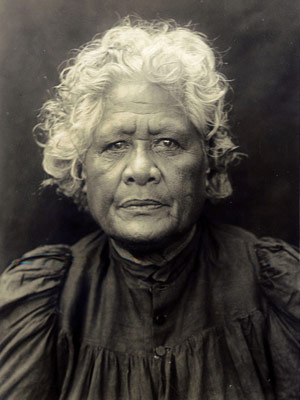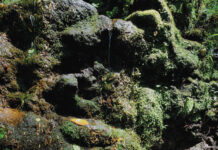Story by Paul Wood | Photo from State Archives
Ola na iwi.
The bones live.

Being a perpetual student of Hawaiian culture — perpetual in the sense that I never graduate — I decided to seek advice on a dilemma that my children have thrust upon me by having kids of their own. That makes me a grandparent. I have no role models for this new life phase, and I’m not at all sure how to feel about it.
So I thought I’d pester some Hawaiian cultural practitioners for insight on what seemed to be the roughly equivalent term for “grandparent” — kupuna. (“Tutu” is affectionate baby talk, like “granny.”) A kupuna is simply anyone who gets old, right?
Not at all.
Non-Hawaiian mind considers the boundary between life and death to be absolute. Hawaiian mind considers this and all such boundaries porous. Life passes into life, the gods are present in patterns of stone and surge of sea, the end has not come, the past lives now, the winds tell stories, and the true role of na kupuna continues beyond chit-chat, in communications otherwise known as hunch, inspiration, conscience, doubt, regret, intuition.
Hang onto your hat, Gramps.






Who is this woman? I feel you should name her when you show her photograph.